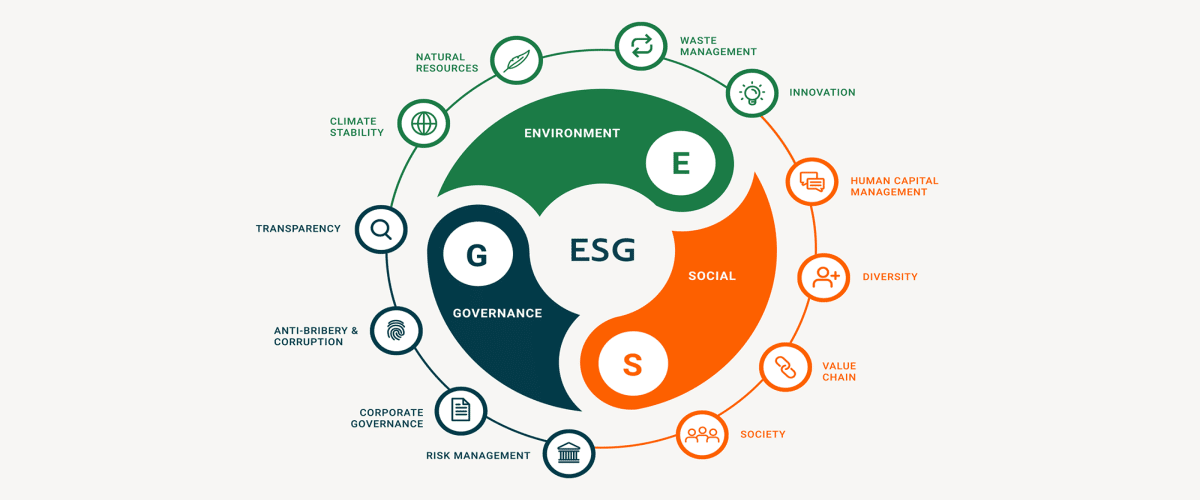ESG and ScopeMaster
As a software leader or developer, you ask yourself what can you do to improve your ESG contribution. And how can ScopeMaster help to improve your ESG standing?
Environmental
ScopeMaster helps teams and organisations to deliver software faster (by working to better requirements) which means the benefits of any software initiative are achieved sooner, including any ESG benefits.
Furthermore, ScopeMaster reduces the wasted (computer) work associated with developing and testing software against incorrect requirements and then rebuilding it, retesting against the correct ones.
Quantified, it is likely that both effort and timescales will be reduced by an average of 10% representing a reduction a) in computer use and b) staff footprint.*
- Computer use (time saving): 10% * 8842 * 194 = 17.15 pounds of CO2 per computer involved. (not just the team, but also servers etc).
- Staff footprint saving (10%) can be aligned with lower staff CO2 footprint = 10% * 40 tons of CO2 = 4 tons of CO2 per team member.
Social
ScopeMaster helps teams and organisations to deliver software faster (by working to better requirements) which means the Social benefits of any software initiative are achieved sooner. For example if you are a government spending on improving services through a software initiative, the sooner that new system is in place, the sooner the populace are benefiting from it. The counter to this is, if you want to delay your software implementation, or spend more public money on it than you could, don’t use ScopeMaster.
Governance
This is about improving transparency, and accuracy of reporting and accounting practices. It is perhaps the area of ESG where ScopeMaster can deliver the most benefit. ScopeMaster helps to expose the functional size of software and software work almost instantly and effortlessly. A lot about governance is about transparency. ScopeMaster increases transparency unlike any other tool or technique in software. It reports size from which we can help expose the costs of software assets, commitments and workloads associated with building and maintaining a software portfolio. ScopeMaster’s automated sizing and requirements quality grading are the keys to opening this transparency (without exposing proprietary information). ScopeMaster helps to expose the quality and size of any software endeavour early. It also helps to reduce project risk and reduces the likelihood of misreporting of a project’s status, further improving transparency and thus governance.
Summary of ESG and ScopeMaster
Environmental, for projects that involve any social benefit, ScopeMaster helps you deliver faster, better and cheaper. ScopeMaster also enables you to reduce waste (computing time, effort etc).
Social, for projects that involve any social benefit, ScopeMaster helps you deliver faster, better and cheaper.
Governance ScopeMaster expose the size and quality of requirements, it also helps discover the actual requirements. This increases the transparency of the real work to be done, which gives leaders the opportunity for improved governance of software work.
ESG and Software
A significant proportion of software initiatives are aimed at directly contributing to an organisation’s ESG goals. If these can be delivered earlier, to higher quality and with less effort, then the ESG benefits can be enjoyed sooner.
Reference data for Environmental Benefits
* The national average carbon dioxide output rate for generated electricity in 2019 was 884.2 lbs CO2 per megawatt-hour (EPA 2021)
Average unit annual energy consumption (AEC) for desktops is estimated to be 194 kWh/yr (median = 125 kWh/yr), and for laptops 75 kWh/yr (median = 31 kWh/yr).
Therefore, saving 1 year is worth approximately 0.8842 * 194 = 171.53 pounds of carbon dioxide from electricity for running a computer. The average carbon footprint for someone in the U.S. is about 16 tons (or closer to 40 tons of carbon dioxide).

